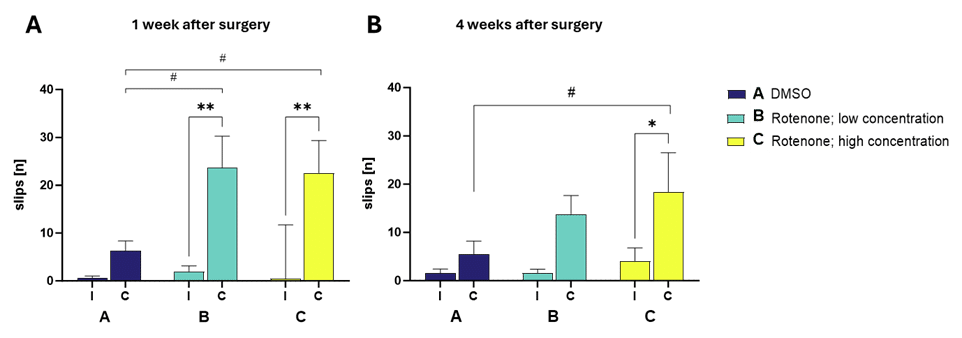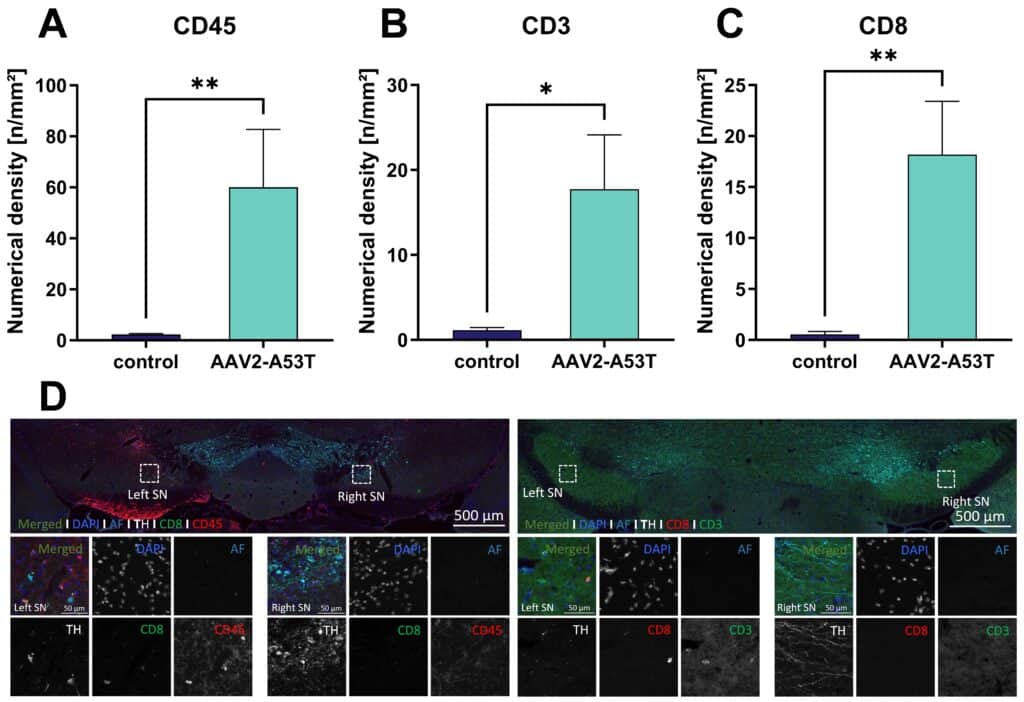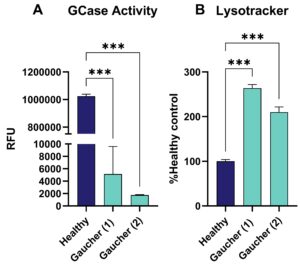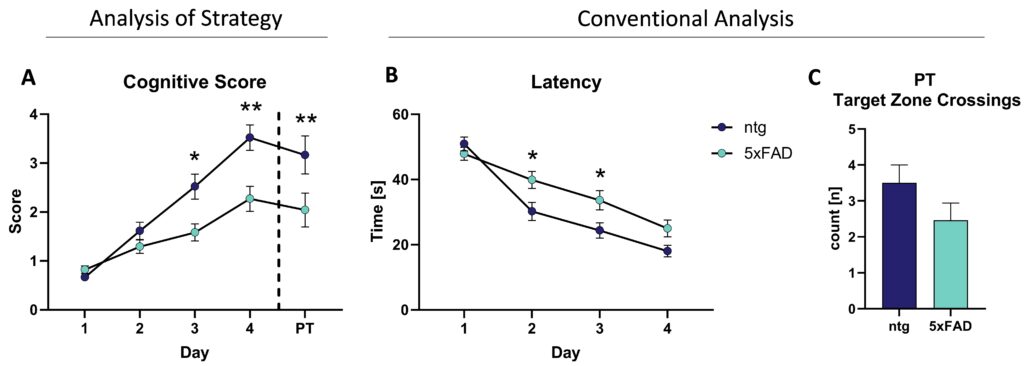Intrastriatal Rotenone Mouse Model of Parkinson’s Disease
Injection of two different concentrations of rotenone directly into the right striatum of wild type mice causes a significant increase of contralateral slips in the beam walk test when compared to the ipsilateral side of the same animals as well as the contralateral side of DMSO-injected littermates (Figure 1A). This phenotype is measurable for at …
B6.SOD1G93A Mouse Model Provides Extended Intervention Opportunities
B6.SOD1G93A transgenic mice, bred on a congenic C57BL/6 background, offer a compelling alternative to the commonly used SOD1(*G93A)1Gur mice. They exhibit a slightly slower progression of the amyotrophic lateral sclerosis (ALS)-specific phenotype compared to the original strain, which is conventionally bred on a mixed C57BL/6xSJL background. The slower disease course offers an extended window for …
Neuroinflammatory and oxidative stress response after AAV2 hA53T-α-syn injection
In a previous newsletter we already introduced the AAV2 hA53T-α-syn mouse model to present increased hA53T-α-syn levels in the unilaterally virus-injected substantia nigra and the caudate putamen of the same hemisphere compared to the contralateral hemisphere injected with control vector. Furthermore, we could show decreased tyrosine hydroxylase (TH) levels and increased Iba1 levels in the …
Patient-Derived Fibroblasts as Versatile Screening Tool for Lysosomal Storage Disease Research
We just established different patient-derived fibroblasts as models for various lysosomal storage diseases (LSDs), offering a valuable tool for drug screening. LSDs are a group of rare genetic disorders, characterized by deficiencies in specific enzymes that usually facilitate the lysosomal degradation process, leading to the accumulation of undegraded substances within the lysosome. These diseases can …
Search Strategy Analysis Details Morris Water Maze Readouts
We now offer advanced search strategy analysis of data gathered during Morris Water Maze (MWM) test without changes to the established protocol. The MWM has been a widely recognized method to analyze spatial navigation and learning for several decades. This makes it a valuable tool for the evaluation of cognitively impaired rodent models, used to …





